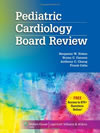All Articles
Accident Investigation & Reconstruction
Healthcare
Alcohol, Tobacco & Other Drugs
Healthcare Facilities - Hospitals
Alternative Dispute Resolution (ADR)
Hotels & Hospitality
Appraisal & Valuation
HVAC - Heating, Ventilation, Air Conditioning
Aquatics Safety
Injury
Arms - Guns - Weapons
Internet Marketing
Artificial Intelligence (AI) / Machine Learning (ML)
Investigation & Surveillance
Blockchain Information
Jails - Prisons - Correctional Facilities
Business Consulting
Land Mapping - Surveying - Zoning
Computer Forensics
Life Expectancy - Life Care Planning
Construction
Logistics - Reverse Logistics
Corrosion
Manufacturing
Cosmetology: Hair / Makeup
Marine - Maritime
Counseling
Medical - Medicine
Crisis Management
Medical Records Review
Discovery & Electronic Discovery
Metallurgy
Documentation Examination & Analysis
Nonprofit Organizations
Domestic Violence
Obstetrics - Gynecology (OBGYN)
Elder Abuse
OSHA
Elevators - Escalator - Automatic Doors
Plants & Trees
Energy - Utilities
Real Estate
Enterprise Resource Planning (ERP)
Securities
Ethics / Ethical Duties
Sexual Abuse - Molestation - Harassment
Feng Shui
Transportation
Forensics
Workplace Violence
More...

INSURANCE-PAGE ARTICLES MAIN PAGE
. Contact Us if you are interested in having your work published on our website and linked to your Profile(s).
All Articles
Accident Prevention & Safety
Intellectual Property
Alcohol, Tobacco & Other Drugs
Land Mapping - Surveying - Zoning
Audio Forensics
Life Expectancy - Life Care Planning
Automotive - Vehicular
Linguistics
Banking
Logistics - Reverse Logistics
Business Consulting
Manufacturing
Business Management
Medical - Medicine
Computer Forensics
Medical Malpractice
Computers
Mining
Construction
Nonprofit Organizations
Counseling
Pain Management
Crime Scene Investigation
Patents
Crisis Management
Pharmacy & Pharmacology
Dental - Dentistry
Plants & Trees
Domestic Violence
Plastic / Reconstructive / Cosmetic Surgery
Education & Schools
Police Practices & Procedures
Electrical - Electrocution
Politics
Expert Witnessing
Pools and Spas (Recreational)
Finance
Psychiatry
Fires & Explosions
Psychology
Foot / Ankle Surgery
Real Estate
Foreign Affairs - Geopolitics
Securities
Forensic Analysis
Speech-Language Pathology
Gems & Jewelry
Terrorism - Homeland Security
Hotels & Hospitality
Transportation
More...
Featured Articles
There are no active articles here at this time. Please use the search bar, try another category, or contact us if you would like to contribute an article.
This Article is unavailable. Contact Us
Search articles by title, description, author etc.
Sort Featured Articles
Featured resources
Pediatric Cardiology Board Review
by Anthony Chang, MD, et al
The Nature of Boats: Insights and...
by Dave Gerr, CEng, FRINA
Forensic Document Examination:...
by Katherine M. Koppenhaver
Follow us










